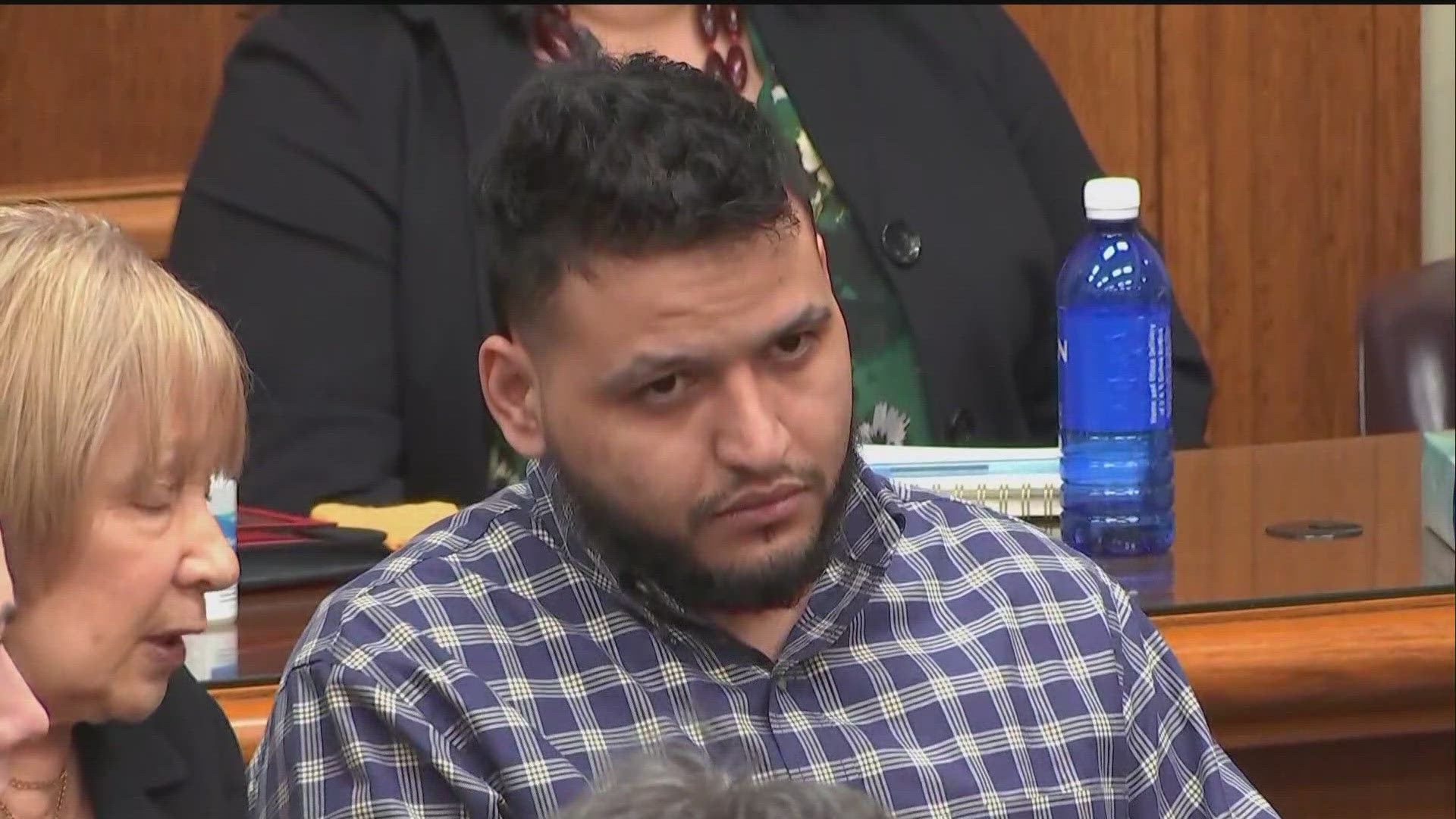ATHENS, Ga. — After months of wondering what happened to their daughter on the morning of Feb. 22 on the University of Georgia campus, Laken Riley's family was delivered justice on Wednesday.
Judge H. Patrick Haggard was swift and decisive in the verdict handed down against Jose Antonio Ibarra in an Athens-Clarke County courtroom, taking just several minutes to deliberate and ultimately reach the conclusion that convicted Ibarra on all 10 counts against him.
Charges Jose Ibarra was found guilty of
Of the ten charges Ibarra was initially indicted on, this is how Haggard ruled on each against Ibarra:
- Malice murder - Guilty
- Felony murder - Guilty
- Felony murder - Guilty
- Felony murder - Guilty
- Kidnapping with bodily injury - Guilty
- Aggravated assault with intent to rape - Guilty
- Aggravated battery - Guilty
- Obstruction or hindering a person making emergency telephone call - Guilty
- Tampering with evidence - Guilty
- Peeping Tom - Guilty
Here is the moment Judge Haggard read Ibarra and the entire courtroom the verdict >>
Jose Ibarra sentencing
Judge H. Patrick Haggard had sole determination on the verdict after Ibarra waived his right to a jury trial. After announcing that he'd found Ibarra guilty on all counts, including multiple counts of murder, the judge planned sentencing for the afternoon.
After hearing victim impact statements from Riley's family and friends, the judge handed down a sentence of life without the possibility of parole on his murder conviction. In Georgia, a conviction of murder can carry only three sentences: life with the possibility of parole, life without the possibility of parole, or death.
Was the death penalty on the table in Laken Riley case?
No, prosecutors before the trial chose not to pursue the death penalty against Jose Ibarra but, according to Associated Press reporting this month, did notify the court in a filing that they were seeking life without parole.
Under Georgia law, a death penalty sentence cannot be given by the court unless "the jury verdict includes a finding of at least one statutory aggravating circumstance and a recommendation that such sentence be imposed." (O.C.G.A. § 17-10-31) However in this case there was no jury, and O.C.G.A. § 17-10-31 stipulates that "this Code section shall not affect a sentence when the case is tried without a jury or when the judge accepts a plea of guilty."
O.C.G.A. § 17-10-30 meanwhile states: "The jury, if its verdict is a recommendation of death, shall designate in writing, signed by the foreman of the jury, the aggravating circumstance or circumstances which it found beyond a reasonable doubt. In nonjury cases the judge shall make such designation."

